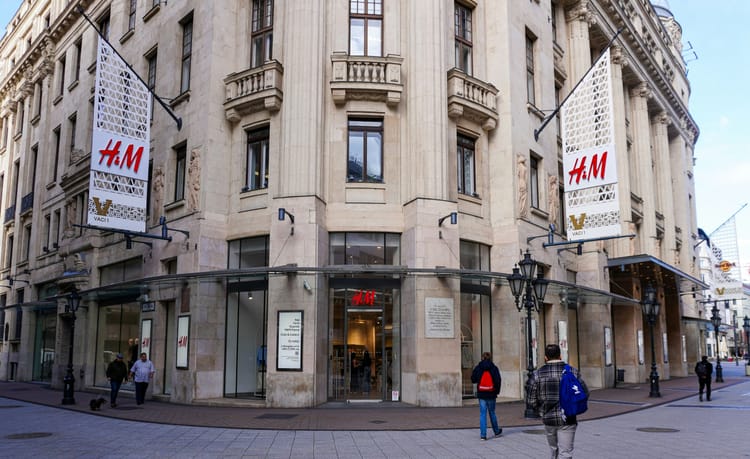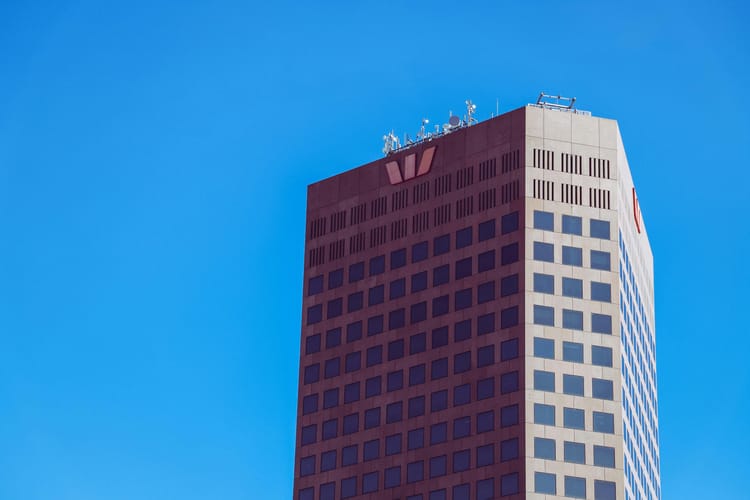Zurich’s Head of Sustainability Linda Freiner on biodiversity, handing reporting to the CFO, and being a “spider in the net”

Linda Freiner, Head of Sustainability at insurance colossus Zurich, spins many plates. Wrangling spreadsheets on the company’s emissions reduction progress is not among them: “[Reporting] was something that we decided to transition into the finance function a few years ago. They have the controls and the expertise and the skills to take care of this ever-changing landscape” she tells CSO Futures on a call.
This was a decision made back in 2019, and a prescient one: “I had a conversation with our CFO and said ‘the landscape has changed’ she explains: “We're really happy that we did that, especially with all the regulation that is coming, because you need to have the system, you need to have the controls, you need to have an edge. [Regulators are trying to] bring up non-financial reporting to the same quality standards as financial reporting. [Finance is] absolutely the right place for it to be.”
Freiner joined the company in 2013 as a flood resilience programme manager, running a $50 million investment that built out “innovative ways to increase the impact of risk reduction efforts at community, national and global levels.” She was made Group Head of Sustainability in 2016 and has overseen an evolution of that role since, that includes a growing decentralisation of the sustainability function.
Zurich’s sustainability profile
Zurich has set a 2050 target to achieve net-zero emissions across its underwriting and investment portfolio and a 2030 target for net zero across its own operations.
Zurich reports its progress in line with the alphabet soup of frameworks familiar to most sustainability professionals (TCFD, WEF IBC, SASB), as well as its Zurich sustainability pillars, which span 12 unique “transformational themes” like “emissions avoided through impact investment” and cybersecurity, including its own resilience and business continuity planning. In 2022 it said it had cut operational emissions 73% against a 2019 baseline. (A new annual report for 2023 lands within weeks.)
As a large investor, Zurich’s sustainability work also spans impact investment. Here, it notes that whilst “standards around impact measurement are starting to emerge, such as the Global Impact Investing Network’s Impact Reporting and Investment Standards, or the Green Bond Principles’ harmonized framework for impact reporting” they are inchoate and it has developed its own measurement framework.
Join peers following CSO Futures on LinkedIn
As an insurance company, Zurich has a lot of skin in the game when it comes to sustainability issues. Take climate risk: 2022, for example, saw $275 billion in global economic losses from natural disasters; just 45% was insured. There’s risk here (among these are not pricing premiums properly, as freak weather events become more common) but there is also opportunity; as an investor and an insurer.
One example: Zurich has built up a proposition around climate resilience; offering data collection and risk analysis, on-site implementation of climate adaptation measures, and completion of sustainability reporting frameworks for its customers.
“We are the risk managers of society” Freiner muses. “We can help society better manage the shocks that we're now dealing with. If you look at climate change, a key piece has been about supporting our customers in how they manage climate risks…”
Mighty powers, a team of five…
There is, in short, a lot going on across Zurich that touches “sustainability” in many different forms. So in a group with 60,000 staff, a footprint in 200 countries and $200 billion in assets under management – as well as so many lines of business running so many programmes that touch on the space; from green bonds to impact investment to climate resilience analysis – what does a Head of Sustainability do? And what is Freiner both professionally and personally focused on and interested in?
Governance seems like an interesting starting point at such a large organisation.
Zurich, Freiner tells CSO Futures, does not break out sustainability as a separate governance body, but does have a Sustainability Leaders Council, which she chairs.
“Within that council, we have representatives of the major business functions, underwriting, investment management, operations, HR, and so on. Then we also bring in Regional Sustainability leads that are responsible for working with the country offices. That’s where we really coordinate different activities; where we prepare for what's to come and also where we look at performance management.”
Her role has “always been about identifying, setting and managing the sustainability performance priorities, setting the KPIs, identifying the initiatives, and making sure that they get integrated into the business. We have quite a decentralised model,” she adds. “We have sustainability teams within the major business functions and countries that we operate in. So my role is also… providing support around the implementation and [sharing learnings] about how we can remove roadblocks.”
“We incubate topics…”
As well as overseeing a “lean and mean” team of just five people at the Group Sustainability level, Freiner’s diverse roles include overseeing management of the charitable Z Zurich Foundation, which the company describes as “the main vehicle by which Zurich delivers on its global community investment strategy [and which] aligns with Zurich’s sustainability agenda, purpose and values, and culture.”
She adds: “We also look a lot at new topics that are coming [up]. So we incubate a few topics and try to prepare for… the approach that the group should have; if it's nature, biodiversity, human rights, or different types of scenario assessments…”
Biodiversity is a top-of-mind challenge – at the moment and not just for Freiner.
A task force focused on regenerative agriculture that includes some of the world’s largest food producers recently noted that tracking biodiversity is a huge challenge.
“The capacity to rapidly and accurately measure outcomes at farm level has not yet been developed" the group (including McCain Foods and McDonald’s) said, opting for proxy/indicator metrics (like percentage of natural/restored habitat) whilst recognising “the importance of moving to outcomes- based measurement…”
Freiner agrees: “[When it comes to biodiversity], everyone is now trying to really find the right framework to approach [it] given that it's such a local topic compared to climate.” She adds: “I think the time of making Big Commitments is gone…
“For climate, we have one global metric that everybody can use, but [for] nature and biodiversity, there's so many different metrics, and it's so industry-dependent.
“[It’s a similar challenge for] financial services companies that invest in such a broad number of industries. How do we really integrate that topic [sustainability], given that it's just so broad? It's easier if you're one company in one industry, and you manufacture a certain thing, and then you understand, but for us, we need to look at a broader portfolio view. So that keeps me awake at night trying to figure that out!”
Her role, ultimately, she says, is to be a “spider in the net” of this huge company.
What does she mean? “To know what's going on in all of the different business functions within the company and bring them together. [Whether it is the] responsible investment team that is working on executing on the strategy that we set; engaging with the investment companies, making sure we have the right mix in our portfolios; or investing in climate solutions. They work very closely with our country offices, external asset managers, and so on. I keep an eye on… progress.
“We have regular performance management conversations to make sure that we advance on the ambitions that we set. Similarly, on the underwriting side, we're looking at what material levers we have; I'm kind of the sparring partner to make sure that we move along [and I] keep them accountable against the KPIs that we've set.
“So it's very much a relationship of ‘how do we move things forward? Are there any roadblocks? Can we work with others?’ Being an enabler making sure we progress.”
Companies are on a Chief Sustainability Officer hiring spree at the moment, data tracked by CSO Futures shows. What would she advise new entrants to this role?
“I think the advice I would say is that sustainability doesn't have to be in the title. That's something we've seen in the company. [People] can help drive sustainability wherever they sit in the company, because it is a lens, it's a mindset of how you look at things. Taking the example of supporting customers, you could just say, ‘well, we're just going to provide them with the insurance solutions that they need.’
“Or you can say, ‘hey, I want to understand what your transition pathway looks like, how are you going to evolve your business model and how can we be supportive of that?’ But if you don't think about that sustainability lens, you might not come to that discussion. So that's what we've really tried to integrate into the company: People carrying that lens with them when they go out and do business,” she adds.







Member discussion